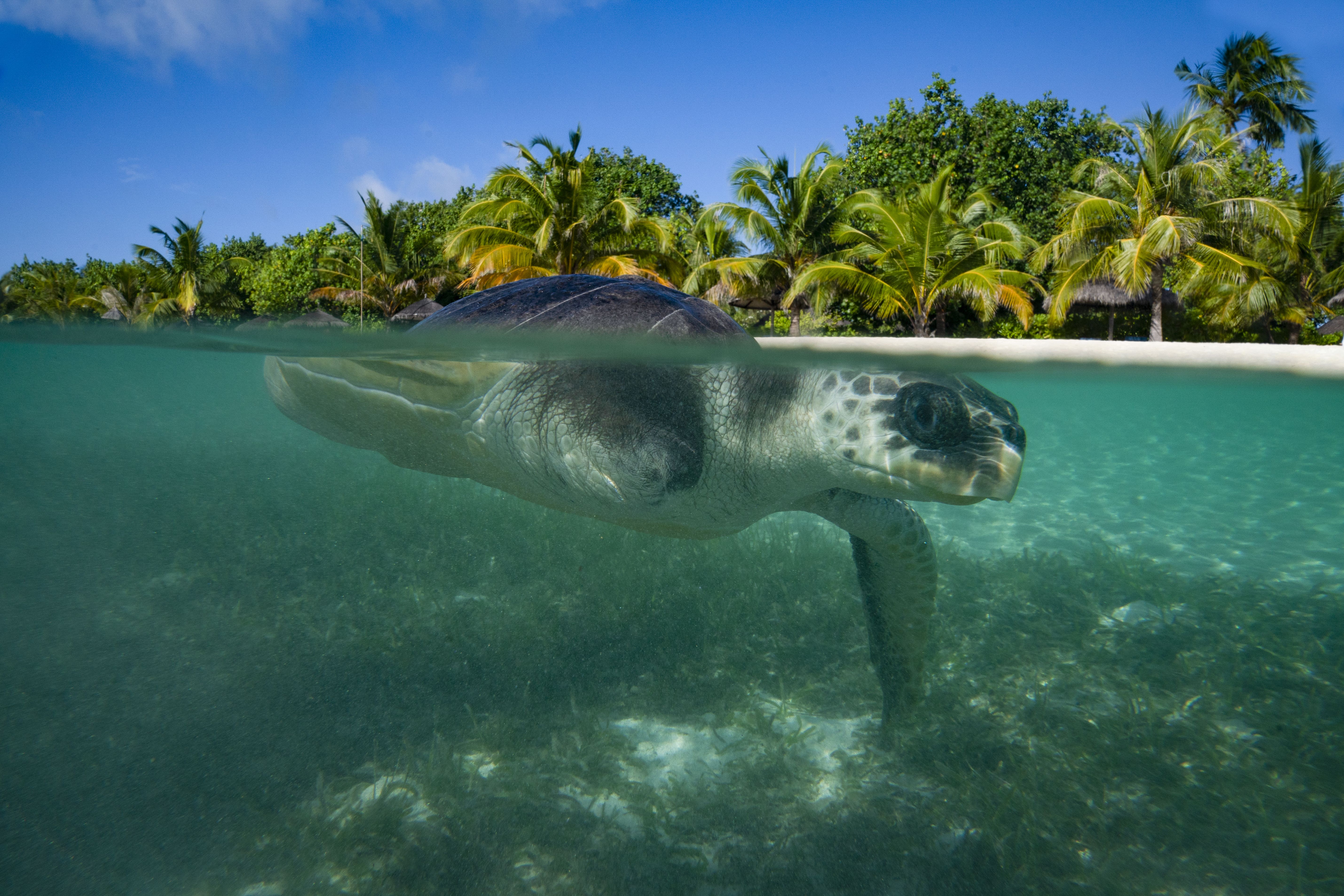Turtles are in a race against time to beat climate change, study suggests
While the creatures are likely to survive a warming planet, they will have move to new places.

Turtles will likely survive a warming planet if they are able to migrate to new habitats before their own become unsustainable in a race against time to beat climate change, a new study suggests.
The research, led by scientists at the Natural History Museum and the University of Vigo, used fossils to look back into deep time and predict the distributions of turtles across an increasingly hotter planet.
The findings suggest the animals are likely to survive in a climate of +1.5C to 2C – the rate at which the planet is expected to warm with climate change – but not in the same places they exist today.
Although not known for their urgency, turtles will need to act fast to beat the rate of climate change
As the planet warms, large areas of northern North America and northern Asia may become wetter and warmer, creating a more suitable habitat for turtles, the researchers say.
Lead author Alfio Alessandro Chiarenza from the University of Vigo, said: “To escape the effects of climate change and avoid extinction due to man-made climate change, turtles must migrate away from their current habitats to a more suitable environment as the planet continues to warm.
“Although not known for their urgency, turtles will need to act fast to beat the rate of climate change.”
He added: “Another obstacle to take into account is the anthropogenic pressures on a potential migration.
“This research provides a basis to inform conservation efforts for turtles, and potentially more species, whose habitats are vulnerable to climate change.”
The team decided to focus this project on turtles for several reasons.
Compared with other fossil reptiles, turtles have a surprisingly good fossil record due to their shells, and their ecology has not changed much over the last few hundred million years
Turtles have a strong relationship with their environment and exist in a very sturdy study system which researchers can use to understand their climate and environmental limits.
By bringing together data on turtles and environmental conditions the team were able to gauge a theoretical environmental space in which the animals could potentially exist, and so make further predictions based on known occurrences.
Professor Paul Barrett of the Natural History Museum, and senior author on this paper, said: “This study excellently demonstrates the untold potential of collections to use historical data to offer new insights into ongoing ecological issues.
“This process, by which we can predict ecological responses to environmental conditions, will inform conservators and policy makers on how best to prepare for the effects of the planetary emergency.”
The findings are published in the journal Current Biology.
Bookmark popover
Removed from bookmarks